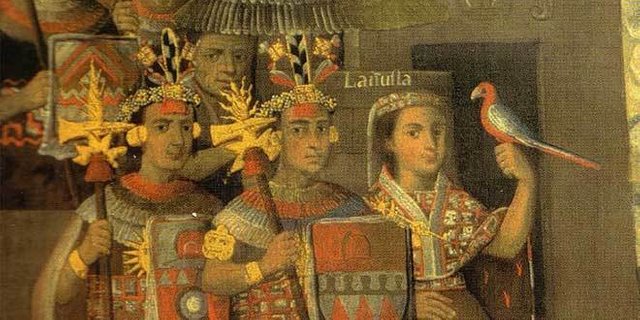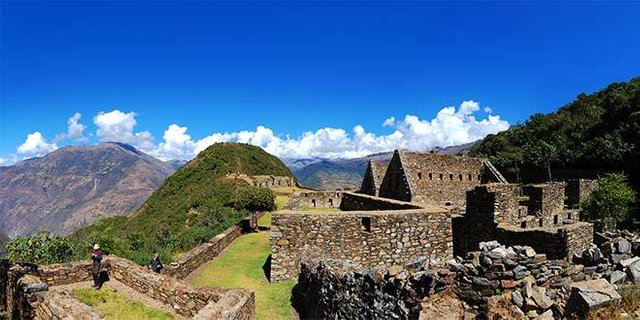Rebellion of Manco Inca

Special treatment deserves the rebellion of Manco Inca Yupanqui, because it is a long struggle for the reconquest of the Tawantinsuyo Empire.
This action is the result of a premeditated and coherent plan. Strategically and carefully organized, the plan begins in May of 1536, and that, due to the insurmountable internal divisions in the Inca Empire, had its tragic end in 1572. In this year the Spaniards take the city of Vilcabamba, last capital of the Tawantinsuyu, and later they decapitate the last Inca: Tupac Amaru I.
DEVELOPMENT OF THE REBELLION
Manco Inca started the rebellion in 1536. In the Sacred Valley of the Incas, from this place he defeated the expedition of Hernando Pizarro.
Then began the attack on the city of Cusco, occupying the Sacsawamán fortress. The attack lasted almost a week. The Spanish simulated fleeing in the direction of the Chinchaysuyo. but they came back surprisingly and took the fortress.
The army of Manco, without water or ammunition and decimated in the fight, could not continue maintaining it. Many preferred to die in combat; among these stands Titu Kusi Hallpa, known as Cahuide, who, seeing all was lost, threw himself from the top of the tower. Hernando Pizarro ordered to slash the 1,500 surviving indigenous soldiers.
While this was happening in Cusco, another Manco army commanded by Kisu Yupanqui was fighting in the central sierra. This courageous captain of Cusco annihilated successively the expeditions of Captain Gonzalo de Tapia in Huaytará, Diego Pizarro on the slope of Parcos and Juan Mogrovejo de Quiñones on the road to Jauja. '
Subsequently, with 20,000 soldiers went to attack Lima. It was August of 1536.
The attack on Lima lasted eight days, but they could not defeat the Spaniards. In what today stands the monument to Pizarro died fighting the heroic Captain Kisu Yupanqui. The decimated army withdrew part through the Chillon valley and the other through Huarochirí towards the Cusque.
In 1538 the Inca forces were annihilated in the central highlands. Manco again tried to attack Cusco, but had to retire in the presence of Almagro who was returning from Chile. Before this situation Manco Inca decides to retire to Vilcabamba, turning this city into the last capital of the Tawantinsuyo.
From Vilcabamba, Manco developed a series of campaigns; the encomiendas that the Spaniards had formed in Urubamba and Apurímac were severely punished by the Inca through guerrilla incursions.
Towards 1545 Manco was assassinated, it is said by some Spaniards of the almagrista side, to those who had given protection. Dead Manco, he was followed by Sayri Thupa, Titu Kusi Yupanqui and Tupac Amaru I, who continued to face the fight.
Around 1572, Viceroy Toledo launched over Vilcabamba the most powerful colonial army to end the resistance. In effect, this army penetrated to Vilcabamba, the Indians resisted but in the end they were defeated. Tupac Amaru I pretended to flee but was captured by the vile betrayal of the curaca Manarie, of the Momori people.
Tupac Amaru I, his relatives and his main collaborators were executed in the main square of Cusco on September 23, 1572. After this fact we can only say that the conquest of the Tawantinsuyo Empire had been consummated.
Summing up the process of Spanish invasion and conquest we can say that it was long and bloody. The Incas of the Tawantinsuyo did not submit easily. The deep divisions and internal struggles favored the colonialist process.

upvote for me please? https://steemit.com/news/@bible.com/2sysip